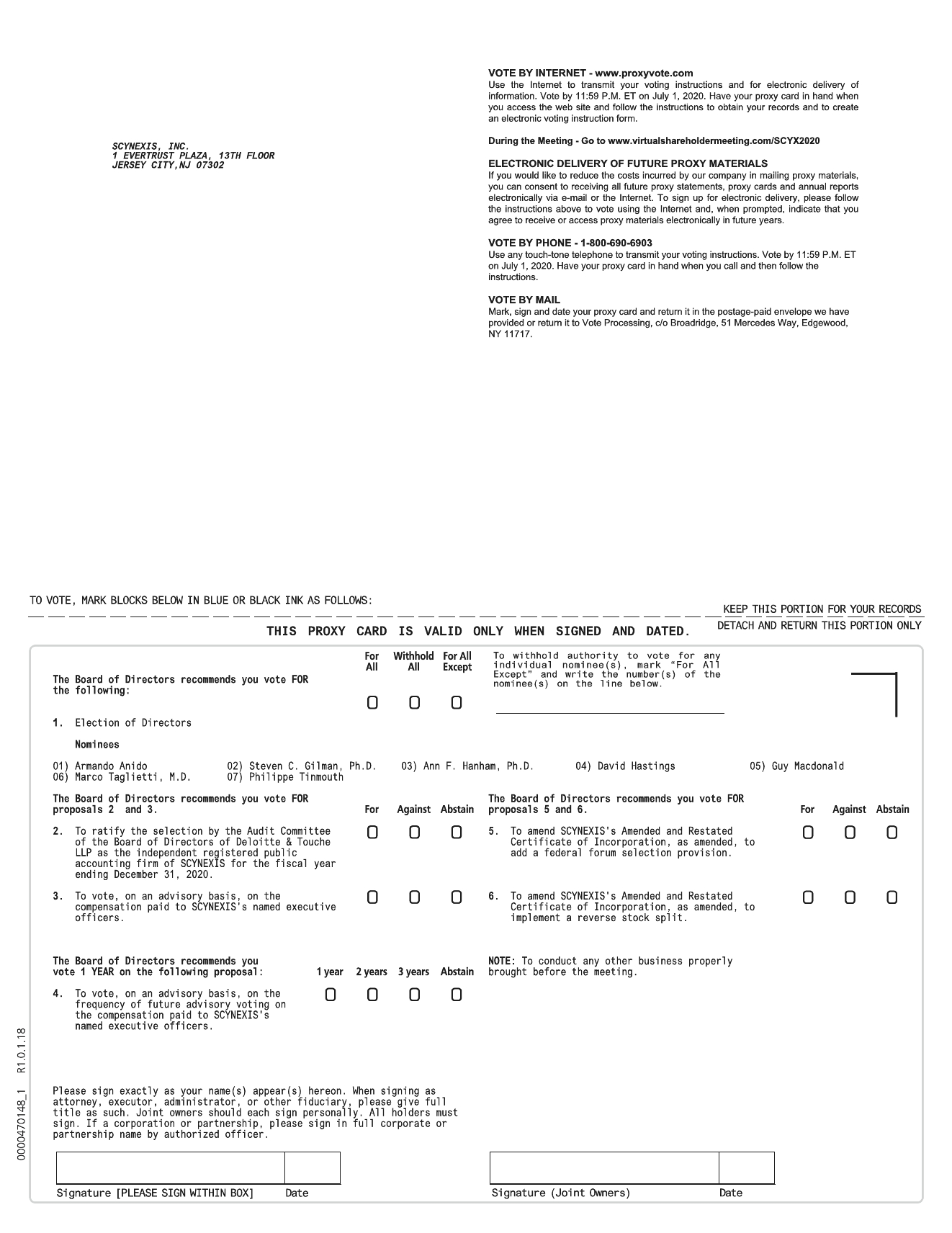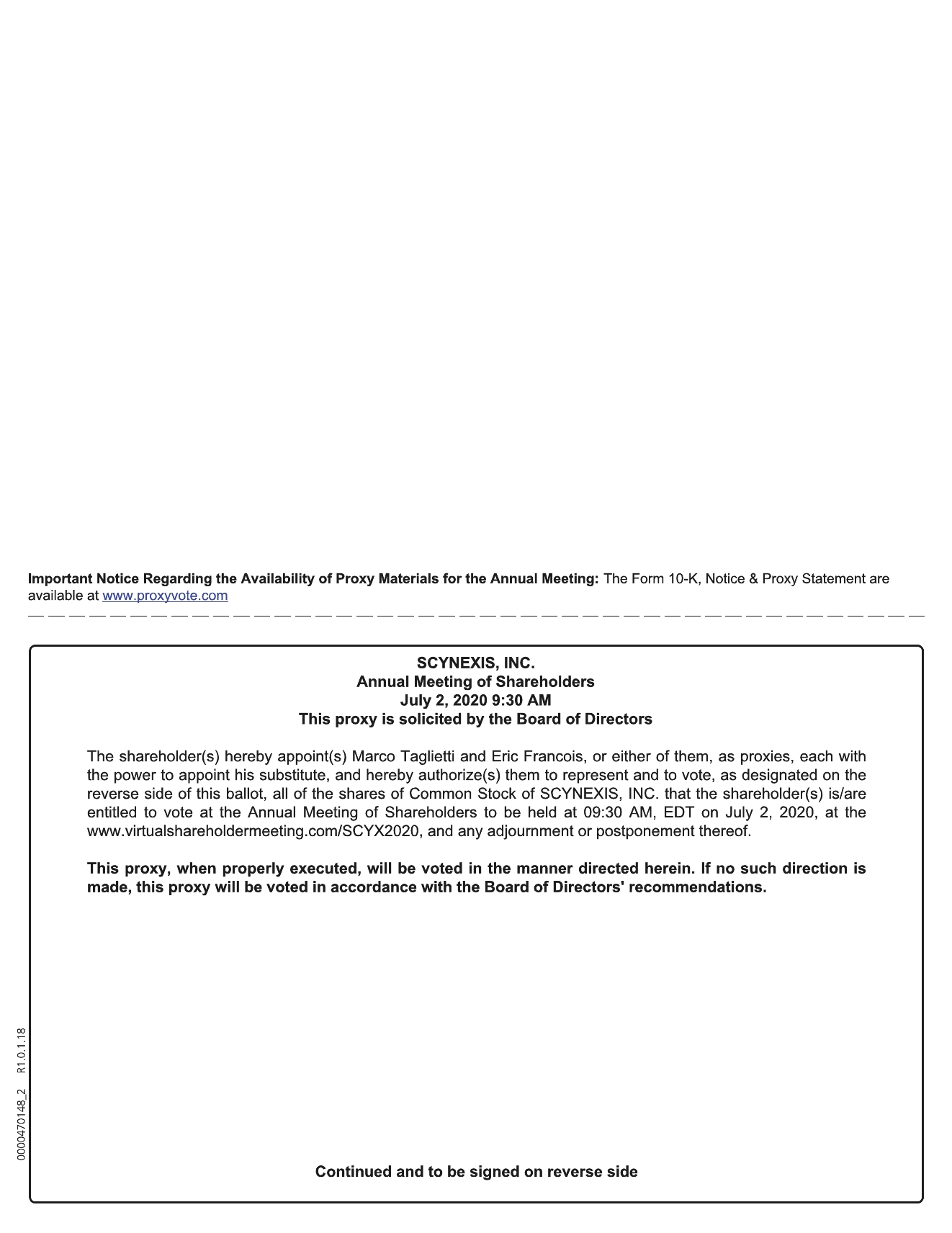proxy card, and follow the recorded instructions. Alternatively, you may complete, sign and return the proxy card using the enclosed envelope provided with the proxy card. If you vote by proxy over the phone or the internet, you will be asked to provide the control number from the proxy card. If you vote by proxy, your vote must be received by 11:59 p.m. Eastern Time on July 1, 2020, to be counted.
We provide internet proxy voting to allow you to vote your shares online, with procedures designed to ensure the authenticity and correctness of your proxy vote instructions. However, please be aware that you must bear any costs associated with your internet access, such as usage charges from internet access providers.
Beneficial Owner: Shares Registered in the Name of Broker, Bank or other Agent
If you are a beneficial owner of shares held in street name, you should have received a voting instruction form from the broker, bank or other nominee that is the record owner of your shares rather than from us. Simply complete and mail the voting instruction form to ensure that your vote is counted. Alternatively, if your broker provides telephone or internet voting, you may vote by telephone or over the internet as instructed by your broker or bank. To vote at the Annual Meeting, follow the instructions from your broker, bank or other agent included with these proxy materials, or contact that organization for instructions on how to vote your shares.
How many votes do I have?
On each matter to be voted upon, you have one vote for each share of common stock you own as of May 12, 2020.
What happens if I do not vote?
Stockholder of Record; Shares Registered in Your Name
If you are a stockholder of record and do not vote by completing your proxy card, over the internet or in person at the annual meeting, your shares will not be voted.
Beneficial Owner; Shares Registered in the Name of a Broker or Bank
If you are a beneficial owner and do not instruct your broker, bank or other agent how to vote your shares, the question of whether your broker or nominee will still be able to vote your shares depends on whether the New York Stock Exchange (“NYSE”) deems the particular proposal to be a “routine” matter. Brokers and nominees can use their discretion to vote “uninstructed” shares with respect to matters that are considered to be “routine,” but not with respect to “non-routine” matters. Under the rules and interpretations of the NYSE, “non-routine matters are matters that may substantially affect the rights or privileges of stockholders, such as mergers, stockholder proposals, elections of directors (even if not contested), executive compensation (including any advisory stockholder votes on executive compensation and on the frequency of stockholder votes on executive compensation), and certain corporate governance proposals, even if management supported. Accordingly, your broker or nominee may not vote your shares on Proposals 1, 3, and 4 without your instructions, but may vote your shares on Proposal 2. With respect to Proposals 5 and 6, we have not been advised as to whether the NYSE will deem these proposals as “routine” or “non-routine”; however, we believe that the NYSE will deem Proposal 5 (approval of an amendment to our Amended and Restated Certificate of Incorporation, as amended, to add a federal forum selection provision) a “non-routine” matter, and Proposal 6 (approval of an amendment to our Amended and Restated Certificate of Incorporation, as amended, to effect a reverse stock split of our common stock) a “routine” matter. Since we have not been advised as to how the NYSE will designate these provisions, we recommend that stockholders cast their votes by proxy to ensure that their shares are voted in the manner they wish.
What if I return a proxy card or otherwise vote but do not make specific choices?
If you return a signed and dated proxy card or otherwise vote without marking voting selections, your shares will be voted, “For” the election of all our seven nominees for director, “For” the ratification of the Audit Committee’s selection of Deloitte & Touche LLP as the independent registered public accounting firm of SCYNEXIS for its fiscal year ending December 31, 2020, “For” each of the other proposals (other than Proposal 4, the advisory approval of the frequency of advisory votes on the compensation of our named

